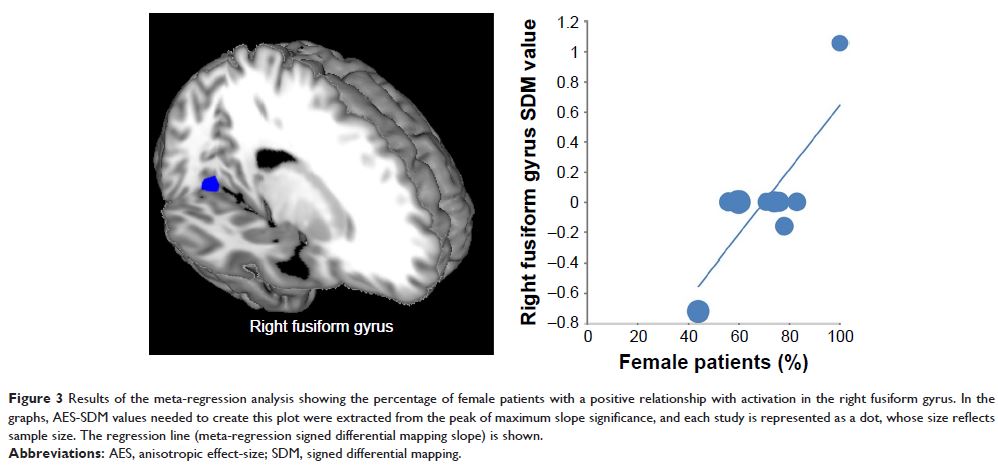108985
论文已发表
注册即可获取德孚的最新动态
IF 收录期刊
- 3.4 Breast Cancer (Dove Med Press)
- 3.2 Clin Epidemiol
- 2.6 Cancer Manag Res
- 2.9 Infect Drug Resist
- 3.7 Clin Interv Aging
- 5.1 Drug Des Dev Ther
- 3.1 Int J Chronic Obstr
- 6.6 Int J Nanomed
- 2.6 Int J Women's Health
- 2.9 Neuropsych Dis Treat
- 2.8 OncoTargets Ther
- 2.0 Patient Prefer Adher
- 2.2 Ther Clin Risk Manag
- 2.5 J Pain Res
- 3.0 Diabet Metab Synd Ob
- 3.2 Psychol Res Behav Ma
- 3.4 Nat Sci Sleep
- 1.8 Pharmgenomics Pers Med
- 2.0 Risk Manag Healthc Policy
- 4.1 J Inflamm Res
- 2.0 Int J Gen Med
- 3.4 J Hepatocell Carcinoma
- 3.0 J Asthma Allergy
- 2.2 Clin Cosmet Investig Dermatol
- 2.4 J Multidiscip Healthc

焦虑障碍情绪调节中的前额顶叶功能障碍:对静息态功能性磁共振成像研究的一个综合分析
Authors Wang HY, Zhang XX, Si CP, Xu Y, Liu Q, Bian HT, Zhang BW, Li XL, Yan ZR
Received 15 February 2018
Accepted for publication 22 March 2018
Published 9 May 2018 Volume 2018:14 Pages 1183—1198
DOI https://doi.org/10.2147/NDT.S165677
Checked for plagiarism Yes
Review by Single-blind
Peer reviewers approved by Dr Colin Mak
Peer reviewer comments 2
Editor who approved publication: Professor Wai Kwong Tang
Objective: Impairments in emotion regulation, and more specifically in
cognitive reappraisal, are thought to play a key role in the pathogenesis of
anxiety disorders. However, the available evidence on such deficits is
inconsistent. To further illustrate the neurobiological underpinnings of
anxiety disorder, the present meta-analysis summarizes functional magnetic
resonance imaging (fMRI) findings for cognitive reappraisal tasks and
investigates related brain areas.
Methods: We performed a comprehensive series of meta-analyses of cognitive
reappraisal fMRI studies contrasting patients with anxiety disorder with
healthy control (HC) subjects, employing an anisotropic effect-size signed
differential mapping approach. We also conducted a subgroup analysis of
medication status, anxiety disorder subtype, data-processing software, and MRI
field strengths. Meta-regression was used to explore the effects of
demographics and clinical characteristics. Eight studies, with 11 datasets
including 219 patients with anxiety disorder and 227 HC, were identified.
Results: Compared with HC, patients with anxiety disorder showed relatively
decreased activation of the bilateral dorsomedial prefrontal cortex (dmPFC),
bilateral dorsal anterior cingulate cortex (dACC), bilateral supplementary
motor area (SMA), left ventromedial prefrontal cortex (vmPFC), bilateral
parietal cortex, and left fusiform gyrus during cognitive reappraisal. The subgroup
analysis, jackknife sensitivity analysis, heterogeneity analysis, and Egger’s
tests further confirmed these findings.
Conclusions: Impaired cognitive reappraisal in anxiety disorder may be the
consequence of hypo-activation of the prefrontoparietal network, consistent
with insufficient top-down control. Our findings provide robust evidence that
functional impairment in prefrontoparietal neuronal circuits may have a
significant role in the pathogenesis of anxiety disorder.
Keywords: anxiety disorder, emotion regulation, cognitive reappraisal, fMRI,
prefrontoparietal network, signed differential mapping
